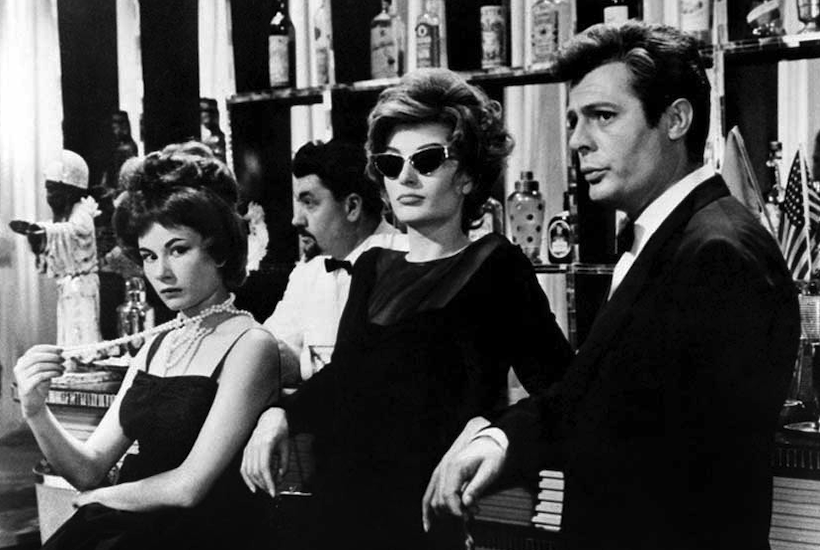Holidaying in Italy is like wearing a mini skirt without knickers: the rules of the Australian nanny-state are cast aside as I sit down to a cake, coffee and cigarette. For breakfast. Because I can. There is nothing like being amidst the animated conversation, the passion, the men in tailored suits – and I’m not even talking about politics yet, that’s just the locals at this bar going about their business as I sit in a booth with this article percolating in my brain.
Conveniently, I happened to be in Italy when the nationalist-right (Lega) pulled the plug on the latest governing coalition vying for a snap election, only for the centre-left (PD) and alt-left (5 Star) to jump into bed together; PD being corporatist neo-liberals who have betrayed their nineteen-sixties and seventies ideals in favour of social elitism, Five Star being a mix of hardcore statist collectivists and anti-establishment anarchists. Despite both parties being of ‘the Left’, the only thing they have in common is a penchant for centimetre perfect Zegna suits. That and neither want Salvini and Lega holding the reins.
In true Italian style, a week had transpired and this new government was still in the throes of boundary drawing foreplay. Lots of wheeling and dealing. Lots of door-stops and press conferences fronted by a stream of politicians talking about ‘saving Italy’ outnumbered only by the people rolling their eyes at the latest round of political promises and platitudes. For Italians, changing government is practically a seasonal affair. The bright, colourful and flouncy Lega/5 Star government has been packed away and the tired PD party has been dusted off and reinstalled into the parliamentary wardrobe, fashioning an austere, un-fun and awkward alliance with 5 Star. Hardly a recipe for stable government. But then again, this is Italy – they haven’t had a stable government since…
Well, Italian politics has been chaotic for decades; it’s merely the degree of chaos that varies. Ground zero for Italian politics is Palazzo Montecitorio in Rome. Rome is one of those cities where base-jumping is safer than crossing the road and where the cultural identity remains so strong you get looked down upon if you’re wearing a designer from ‘out of town’. Every part of the city is a postcard and a hurrah to a glorious past. Rome is the home of Caravaggio, Bernini, Fendi and the Vatican. It has been the cradle of government, culture, military prowess and knowledge for millennia. As they say, if only the walls could talk.
It begs the question: how did the descendants of Europe’s first republic and the world’s greatest empire succumb to a state where the unelectable are elected to govern the ungovernable?
Italian politics, ancient and modern, has had more heroes and villains than the complete works of Shakespeare with the odd porn star and titan of industry thrown in to keep things interesting. There have been so many governments since the end of World War II that Italy is either the most far-reaching democracy or a total failure of democratic governance. The adoption of the Euro has probably been the greatest modern economic disaster, just as unbridled immigration now marks the greatest modern cultural catastrophe. It is now a country unable to control its economy, its borders or, seemingly, its future.
With a debt to GDP ratio of 132.2 per cent last year, Italy would be invaluably assisted by being able to devalue its currency and trade its way to economic prosperity. Alas, Italy has hitched its cart to a horse that cannot lead it in that direction. With banks teetering on the edge of bankruptcy, high unemployment, skyrocketing public debt and a political class principally interested in sunbaking in Sicily, one wonders whether there is the political will to reform Italy in any meaningful way.
When I ask everyday people about the political situation, I receive the following answers: everyone wants to eat but no one wants to work; the rich are richer, the poor are poorer and the middle class has disappeared; we are in crisis – we are always in crisis; the politicians are only interested in themselves, not the country; it’s a mess.
When a country’s government falls so often and with such ease, one wonders whether it’s a systemic constitutional failing. If 500,000 Fiats all have the same failure, you can’t just blame the drivers. There is more likely a flaw with the design. And while the Italians could benefit from better drivers, constitutional reform would be difficult even without the overlay of *cough* supervision from the Europeans. The amount of power held in Brussels has greatly restricted Italy’s sovereignty and its ability to effect structural and lasting reform.
While Australia is in need of a reformist government to get us back on track after a decade in the wilderness, at least we are, regardless of the government’s stripes, fundamentally capable of stable, effective and checked government. We might be a bit credit card happy at the moment but at least our debt to GDP ratio last year was limited to a relatively underachieving 40.7 per cent
This is more than can be said for Italy, and I’m not sure even the greatest cynic could have imagined this once formidable industrial and scientific powerhouse would become so impotent, so resigned and so bereft of hope.
Thankfully, Italy has a habit of coming back from the brink to shine brighter. I can only hope I’m around to see it happen.
Caroline Di Russo is a lawyer, businesswomen and unrepentant nerd.
Illustration: Riama Film/Pathé Consortium Cinéma/Gray Films.
Got something to add? Join the discussion and comment below.
Got something to add? Join the discussion and comment below.
Get 10 issues for just $10
Subscribe to The Spectator Australia today for the next 10 magazine issues, plus full online access, for just $10.


























Comments
Don't miss out
Join the conversation with other Spectator Australia readers. Subscribe to leave a comment.
SUBSCRIBEAlready a subscriber? Log in